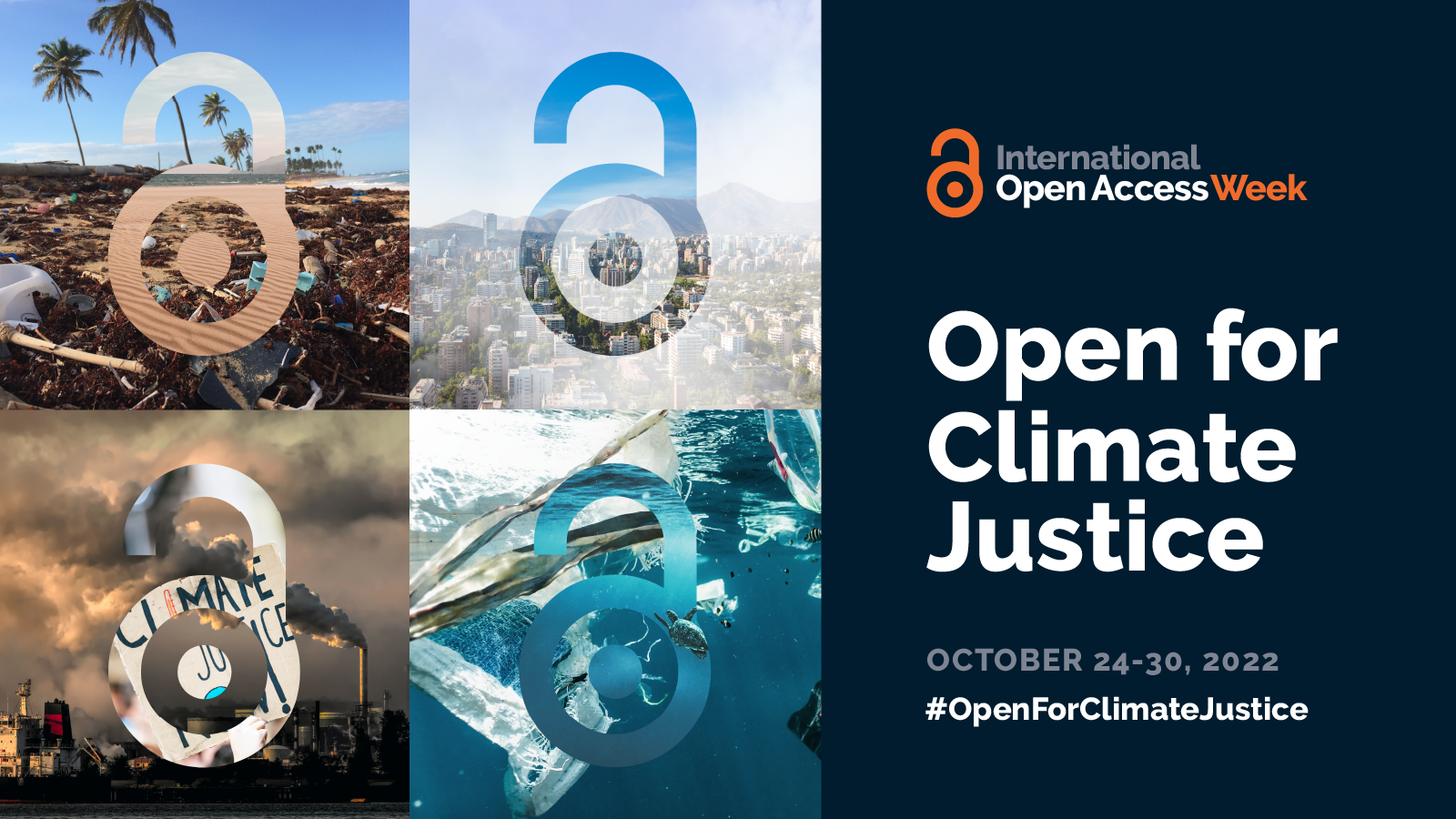
The University Libraries, Health Sciences Library and Informatics Center (HSLIC), and the UNM Law Library have collaborated together to bring the UNM community and the global community access to lectures, panels, and workshops on topics related to Open Access research and Open Educational Resources. Information about the team behind these events and more about the Open Access movement can be found on the Open Access Library Guide. Down below, you will find the calendar of UNM's OA Week 22 events. You can also find recordings of the events in the Open Access Week 2022 Digital Symposium located in UNM's Digital Repository.
Open for Climate Justice: To Solve the World’s Biggest Problems, We Need Open Knowledge
The University Libraries is excited to virtually host Dr. Monica Granados (she/her), the Climate Change Campaign Manager for Creative Commons, as a speaker on the first day of Open Access Week, October 24th, 2022 at noon Mountain Standard Time.
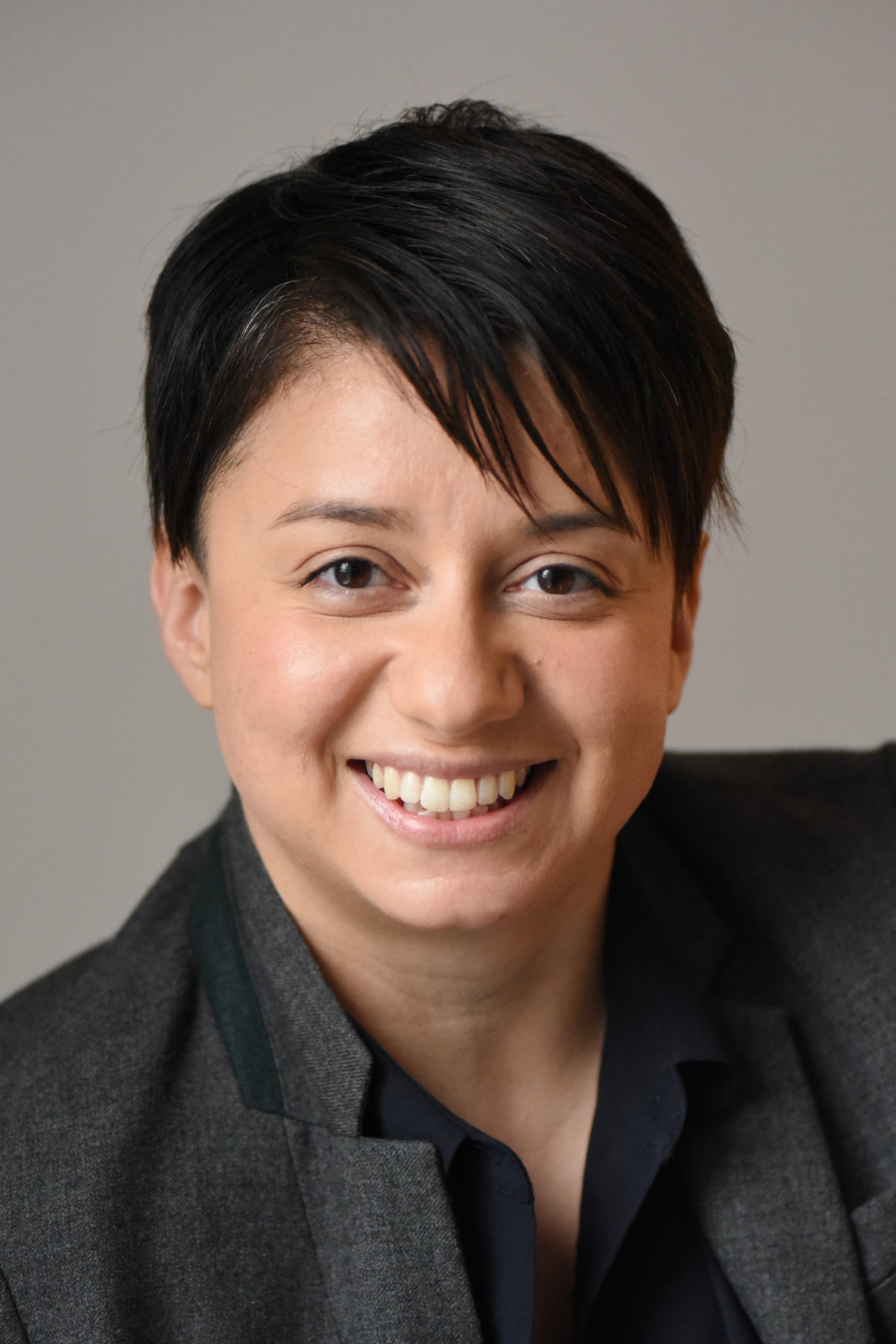
Dr. Granados has a PhD in ecology from McGill University. While working on her PhD, Monica discovered that incentives in academia promote practices that make knowledge less accessible. Since then, Monica has devoted her career to working in the open science space in pursuit of making knowledge more equitable and accessible.
As a Senior Policy Advisor at Environment and Climate Change Canada she provided subject matter expertise and supported the delivery of open science in the Government of Canada. Monica is now working at Creative Commons on a global campaign promoting open access of climate and biodiversity research. As a member of the Leadership Team at PREreview she works to make peer review more open and diverse. She is also on the Board of Directors of the Canadian Open Data Society promoting open data in Canada and alumna of the Frictonless Data Fellowship.
MAKE -A- ZINE!
In celebration of Open Access Week, stop by Zimmerman Library on Monday, October 24 between 2pm -4pm and learn to make a zine from a single sheet of paper. Marya Jones, founder of ABQ Zine Fest, shows you how! Zines created through this event will be eligible for inclusion in our Open Access Week 2022 Digital Symposium.
What's a zine? A zine is short for magazine - it's thoughts, feelings, and ideas on paper, using images, writing, and drawings. Making a zine is a great way to connect with your creative side.
Think Global: Act Local - Ensuring an Equitable Transition to Open Science
The University of New Mexico Health Sciences Library and Informatics Center is excited to virtually host Kathleen Shearer, Executive Director of the Confederation of Open Access Repositories (COAR) to speak during Open Access Week. Shearer will present Think global: Act local - Ensuring an equitable transition to open science October 25, 2022, at 10:00am.
Shearer's presentation "Think Global: Act Local - Ensuring an Equitable Transition to Open Science" will focus on how open science promises to offer unprecedented access to the full corpus of research, breaking down access barriers for many researchers. However, there is a risk in the transition to open science - new barriers will be erected and a significant portion of researchers/authors will again be excluded from the system because of the predominance of pay to publish models. This presentation will examine the systemic factors including the transition to open science and discuss potential avenues for ensuring diversity, equity, and inclusivity across the scholarly publishing ecosystem.
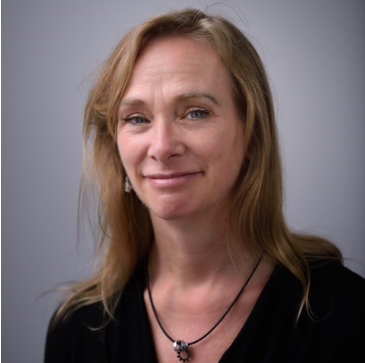
Shearer has been working in the area of open access, open science, scholarly communications, and research data management for over 20 years. She is the author of numerous publications and delivered many presentations at international events. Most recently, she was the lead author of the paper Fostering Bibliodiversity in Scholarly Communications: A Call for Action (April 2020). She participates in the work of numerous other organizations to advance open science around the world and is also a Research Associate with the Canadian Association of Research Libraries (CARL) and has been instrumental in many of CARL’s activities related to open science, including the launch of the Portage Initiative in Canada, a national research data management network.
Indigenous Data Sovereignty and the Open Access Movement
The UNM Health Sciences Library & Informatics Center (HSLIC), in conjunction with HSLIC’s Justice, Equity, and Inclusion Committee, is pleased to host a roundtable-style discussion around the critical concepts that inform the exchange of information related to research by and about Indigenous and Native American communities. Nested within the methodology of Indigenous Data Sovereignty, panelists will highlight best practices and considerations for rights management, governance, sharing, and use of Indigenous data as it relates (and oftentimes conflicts) with the Open Access movement.

Dr. Stephanie Russo Carroll (she/her/hers) is Dene/Ahtna, a citizen of the Native Village of Kluti-Kaah in Alaska, and of Sicilian-descent. Based at the University of Arizona (UA), she is Assistant Professor, Public Health and American Indian Studies Graduate Program; Acting Director and Assistant Research Professor, Udall Center for Studies in Public Policy; Associate Director, Native Nations Institute; and Affiliate Faculty in the College of Law. Stephanie’s interdisciplinary research group the Collaboratory for Indigenous Data Governance develops research, policy, and practice innovations for Indigenous Data Sovereignty. Stephanie co-edited the book Indigenous Data Sovereignty and Policy and led the publication of the CARE Principles for Indigenous Data Governance. Stephanie co-founded the US Indigenous Data Sovereignty Network and co-founded and chairs the Global Indigenous Data Alliance (GIDA) and the International Indigenous Data Sovereignty Interest Group at the Research Data Alliance. She Chairs the Indigenous Data Working Group for the IEEE P2890 Recommended Practice for Provenance of Indigenous Peoples' Data.
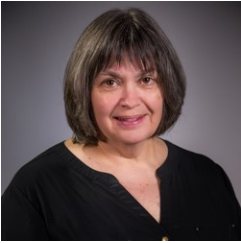
Dr. Debra MacKenzie (she/her) is co-director of the Community Environmental Health Program (developed and co-directed by Dr. Johnnye Lewis). Dr. MacKenzie and Dr. Lewis lead the Navajo Birth Cohort Study, a prospective birth cohort study investigating the impacts of pre-natal and early life exposures to uranium and other co-occurring metals on child health and development. This study is part of the NIH's Environmental influences on Child Health Outcome (ECHO) program. Dr. MacKenzie is also involved with an ongoing clinical trial on Navajo Nation investigating the potential benefits of supplemental zinc for mitigating metals toxicity.
Friday, October 28th @ 1 p.m. Mountain time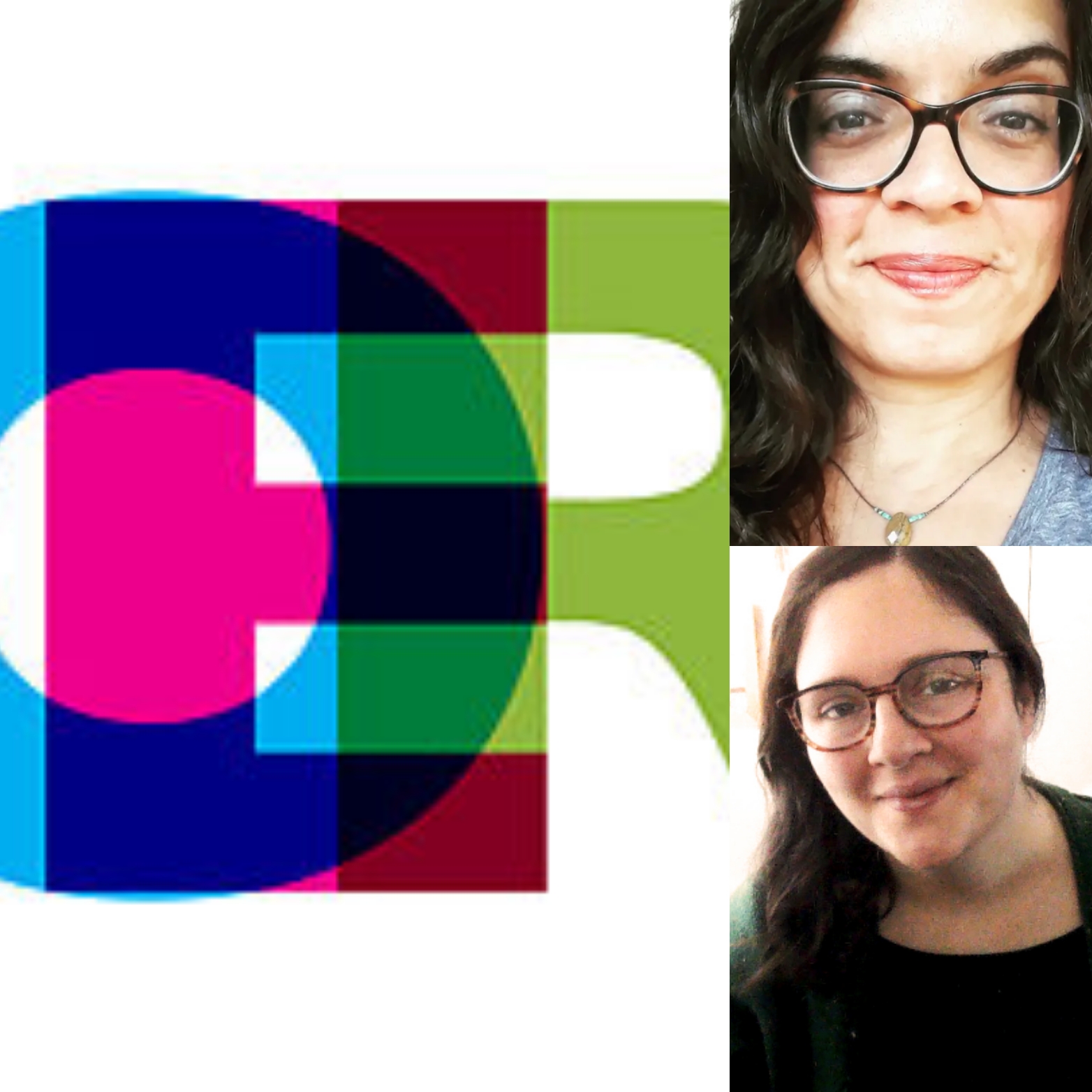
During this Open Access Week webinar, UNM’s OER Librarian, Jennifer Schaller (she/her), and Mary Willms Wohlwend (she/her) from Digital Learning @ the Center for Teaching and Learning will give an overview of options available for faculty who would like to incorporate Open Educational Resources into their curriculum. Jennifer will give a primer on OER materials and the OER movement. She will also equip attendees with resources to find and evaluate OER in their own disciplines. Meanwhile, Mary will discuss options for how Canvas can support faculty adoption of OER materials.
In celebration of Open Access Week, the University of New Mexico Libraries is highlighting environmental posters from the Sam L. Slick collection, a collection of 12,000 Latin American and Iberian political posters. The Center for Southwest Research has digitally archived 5,000 of these posters, and they are available for the public to openly access through the New Mexico Digital Collections. 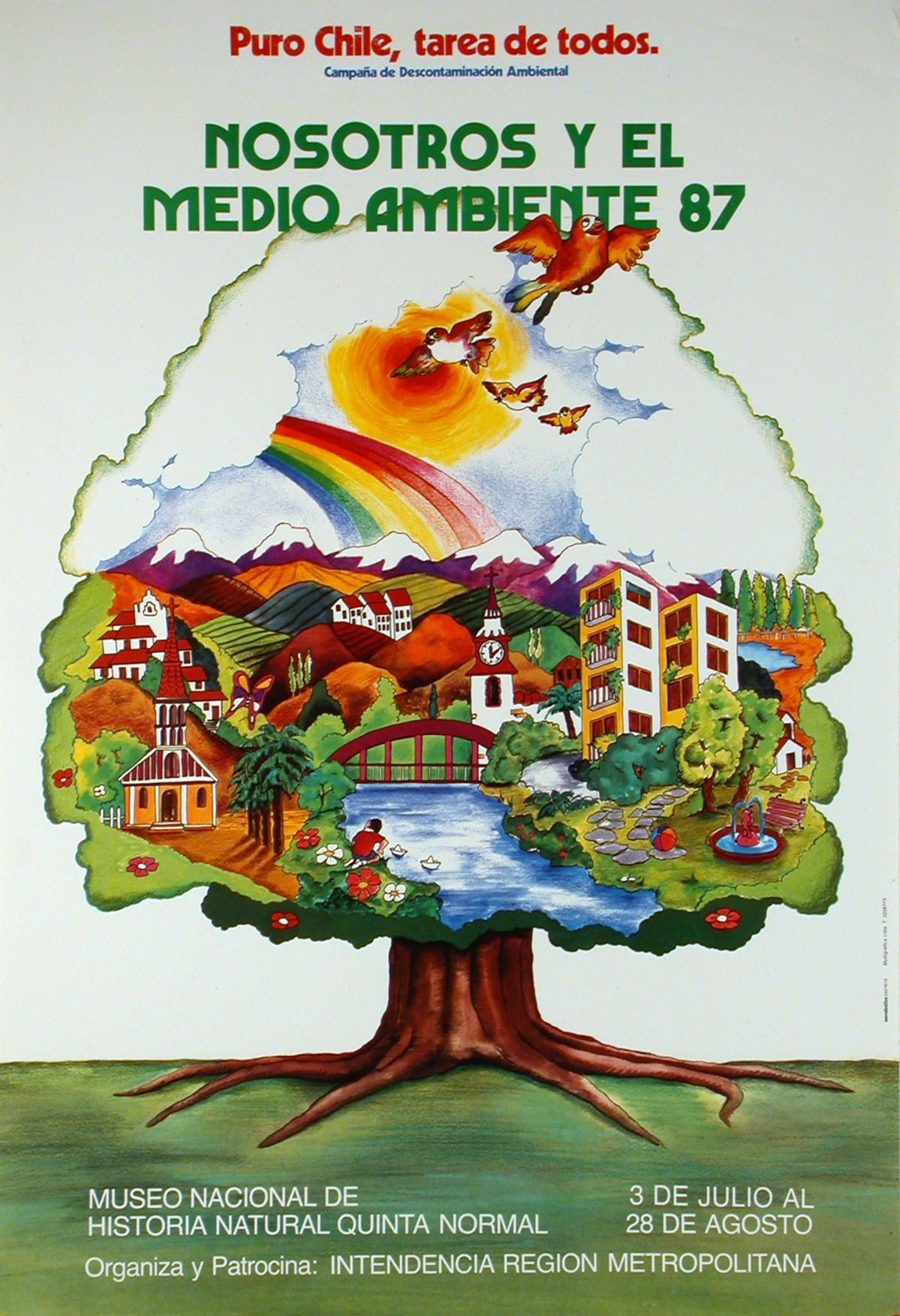
The collection covers political topics such as the Sandinista Revolution, the Falkland Islands War, the El Salvadoran Anti-Government/Exile movement, the Bolivian Government, Mexico’s Partido Popular Socialista, Cuba under Castro, Paraguay’s Stroessner, the Panama Canal Treaty, and Post-Franco Spain. Subjects covered in the Slick collection include tourism and travel, historic figures, historic events, film, imperialism, solidarity, safety, the environment, energy conservation, health and sex education, peace, nationalism, agriculture, industrial production, music, religion, and women.
Reproductions of a few of the collection's environmental posters will be displayed throughout Zimmerman during Open Access Week, including the picture on the right from Chile, which promotes an environmental awareness program held at the National Museum of Natural History in Chile.
Permission for reprinting “Nosotros y el Medio Ambiente ‘87” was granted by the Center for Southwest Research. You will find more Open Access materials from this collection in the New Mexico Digital Collections.